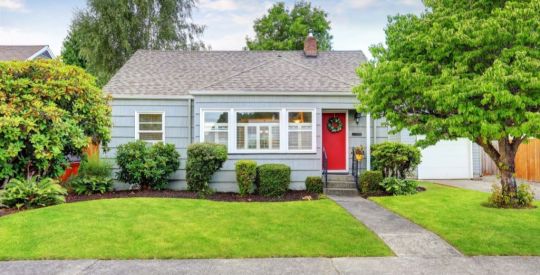An 80-year-old Colorado Home Equity Conversion Mortgage (HECM) borrower — who was nearly foreclosed on for running afoul of the program’s occupancy rule — faced foreclosure for a second time last week. However, a U.S. Congressman intervened on his behalf, according to a local CBS News affiliate. The FHA also stepped in, according to a statement.
Ed Sharp, whose home in Superior, Colorado was destroyed in the Marshall Fire, was at risk of losing his property to foreclosure due to the requirement that reverse mortgage loan borrowers must live in the property as their primary residence. While the initial foreclosure was reportedly rescinded, foreclosure on the property was initiated for a second time at the start of the month.
Congressman intervenes
Rep. Joe Neguse, who represents the district Sharp resides in, intervened to get the foreclosure rescinded again, according to recent reports.
“It makes no sense, it’s nonsensical to suggest to those who are impacted by the Marshall Fire who’ve literally lost everything that now they would be compelled to have their home foreclosed on because of an occupancy requirement that obviously is not operative when they can’t live in the house itself because of damage as a result of the Marshall Fire,” Neguse told the CBS News affiliate earlier this month.

Neguse turned his attention to the HECM occupancy rule after learning about Sharp’s circumstances, sending a letter to Federal Housing Administration (FHA) Commissioner Julia Gordon urging for occupancy rule revisions to allow for longer exceptions for borrowers displaced by natural disasters.
“In the case of natural disasters and similar emergency situations […] the temporary evacuation of communities is often necessary to protect human life and then to rebuild property following extensive damage,” Neguse wrote. “And yet, regardless of these unique circumstances, if HECM occupancy requirements were not met, some lenders apparently argue that federal regulations permit them to foreclose on reverse mortgages for damaged or destroyed property.”
If borrowers affected by natural disasters are making good faith attempts to stay in good standing with their loans or to rebuild or sell the affected property, they should not be penalized with foreclosure, Neguse wrote.
HUD response
“FHA recognizes the situation described in Representative Neguse’s letter should not have occurred,” a U.S. Department of Housing and Urban Development (HUD) spokesperson said in response to RMD’s inquiry on the issue. “When the matter was brought to our attention, FHA immediately contacted the servicer, who in turn halted any foreclosure-related activity.”
The HUD spokesperson said they are examining ways to help avoid these types of foreclosure issues for reverse mortgage borrowers affected by natural disasters.
“FHA is implementing new safeguards in its technology systems to ensure that homeowners with Home Equity Conversion Mortgages do not face foreclosure as they seek to recover and rebuild following disasters,” the HUD spokesperson said. “In addition, FHA is working on further guidance for the servicing of HECM loans on properties impacted by disasters.”
Legislative efforts
The Colorado legislature is currently deliberating a bill, “Reverse Mortgage Repayment When Home Uninhabitable,” to extend the time allowed for HECM borrowers impacted by natural disasters to be out of their homes. The bill would extend the time from one to three years.
Statements from Rep. Kyle Brown indicate that the bill was voted favorably out of committee as of April 12. The representative also tweeted that he is working alongside the office of Rep. Neguse to address these issues.
“Proud to be working in tandem with Rep Neguse’s office to address this reverse mortgage issue at the state level while he works on the federal level,” Brown tweeted. “[L]ast night we were able to pass HB23-1266 through committee to address this time limit/non-occupancy requirement issue.”
The bill is co-sponsored by Rep. Brown and Rep. Naquetta Ricks, who represents the state’s 40th district.
Rep. Brown, who represents Sharp’s district, recently said that extending the time period would better align reverse mortgage allowances with other industries, like insurance.
“It takes a while for folks to rebuild their home,” Brown said. “And so, even though I know the federal protections are for about a year, insurance companies generally give people two years where they’re paying for what’s called ‘alternative living expenses.’ So they’re expecting people to be out of their homes in the event of a total loss for up to two years at least. So, I would encourage the federal government to consider similar protections.”



